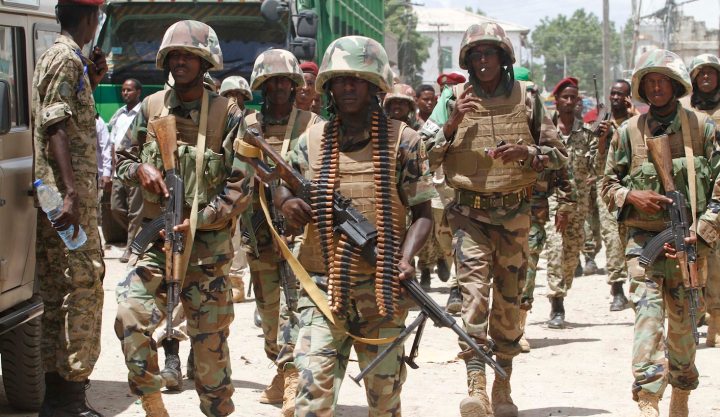Newsdeck
US military faces Africa cuts, sees Somalia, Mali successes

US military forces in Africa may lose well over a tenth - or some $40 million - from their 2014 budget, the U.S. Africa Command said on Thursday, although it saw success against militants in Somalia and Mali. The bulk of such cuts will fall on headquarters and training programmes, AFRICOM commander General David Rodriguez said, most likely forcing smaller exercises. By PETER APPS
The size of AFRICOM headquarters in Stuttgart, Germany, is to be reduced by some 20 percent. The planned cuts are part of broader across-the-board US spending restrictions dubbed “sequestration” and imposed after Congress failed to agree deficit reduction measures.
AFRICOM – set up in 2007 to coordinate U.S. military activity on the continent – retains some 5,000 troops in Africa at any time, primarily in Djibouti. Much of their focus is on building local military capability and training forces for missions such as the African Union mission AMISOM in Somalia and its UN counterpart in Mali.
“The budget is going to be reduced … although I would expect that the number of places where we have exercises will remain approximately the same,” Rodriguez told a press briefing in London.
“We’ve had to reduce the size of some of these exercises and change the nature of some … to involve fewer troops.”
After the September 2012 attack on the U.S. consulate in Benghazi, Libya, however, Rodriguez said AFRICOM and the State Department had stepped up security at some embassies and improved its information sharing and emergency protocols.
Rodriguez said he believed AMISOM had begun to push back Islamist al Shabaab militants in Somalia and that UN forces in Mali had significantly disrupted al Qaeda in the Islamic Maghreb
Analysts say French and Chadian troops did much of the work in curbing AQIM before the mission became part of a U.N. peacekeeping force in June, and operations now still primarily involve French and Malian troops.
Rodriguez said the just over 100 special forces operators supporting regional militaries in the hunt for Ugandan former Lord’s Resistance Army chief Joseph Kony had also markedly reduced LRA operations, even if Kony himself remained elusive.
Piracy in the Gulf of Guinea remained a serious worry, Rodriguez said, with US. forces working to train local navies and coastguards. AFRICOM was also working on training and information-sharing with Nigeria’s military as it battles a growing insurgency by Islamist group Boko Haram.
Despite rumours to the contrary, however, he said Washington had no plans to deploy troops or drones in Nigeria despite listing Boko Haram as a banned terror group.
The United States will continue to take its own occasional direct action in Somalia, he said. Although it rarely comments on specifics, Washington has been widely suspected of being behind several drone strikes on al Qaeda and al Shabaab.
In October, US special forces carried out an unsuccessful raid on an al Shabaab leader dubbed “Ikrinna” and suspected of plotting a host of attacks on Western and other targets.
It was not clear whether or not he was involved in the attack the previous month on Nairobi’s Westgate shopping mall that killed 67 and was claimed by the Somali group.
“The effort in Somalia has dislocated al Shabaab,” Rodriguez said, adding that the group had been pushed from the capital Mogadishu in some other areas.
“AMISOM have to keep the pressure up – and that’s just the military picture. A model of things have to be done as well.”
That included making Somalia’s transitional government more effective, he said.
In Mali, where Washington has also provided airlift and intelligence to French, UN and Malian troops, Rodriguez said AQIM fighters had been dispersed and less effective, even though their overall numbers had likely not fallen.
Despite an upsurge in fighting between Mozambique’s government and the RENAMO opposition, Rodriguez said AFRICOM had no plans to increase support to the Mozambican military. DM
(Editing by Mark Heinrich)
Photo: Djibouti soldiers serving in the African Union Mission in Somalia (AMISOM) patrol the south central town of Beledweyne in Somalia. (REUTERS/Feisal Omar)





















 Become an Insider
Become an Insider